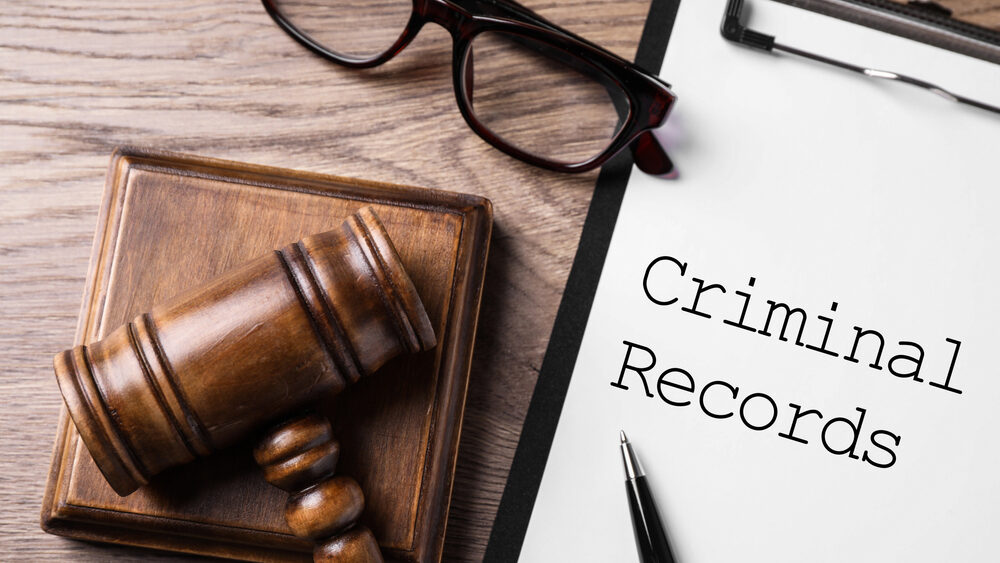How to Expunge a Criminal Record in New Jersey: A Step-by-Step Guide to Starting Fresh
April 18, 2025

A criminal record can make moving forward in life difficult. It can limit job prospects, affect housing opportunities, and even impact personal relationships. But in New Jersey, there’s hope for a second chance. Thanks to state expungement laws, many people can clear their criminal record and start over.
At Aydelotte Law, LLC, we’ve helped countless clients across South Jersey explore their expungement options and reclaim opportunities that once felt out of reach. Led by experienced criminal defense attorney Nancianne Aydelotte, Esq., our firm is committed to guiding individuals through this process with clarity, professionalism, and compassion.
If you’re looking to rebuild your life, understanding how expungement works – and whether you’re eligible – is the first step toward a clean slate.
What Is Expungement in New Jersey?
Expungement is the legal process of sealing parts of your criminal record from public view. In New Jersey, once your record is expunged, it’s treated as if the offense never happened – meaning it won’t show up on most background checks.
That being said, there are exceptions. Certain law enforcement and government agencies may still access expunged records under specific conditions, such as during a criminal investigation or when applying for some professional licenses.
How Expungement Can Help You Move Forward
Clearing your record can open new doors – personally and professionally. The benefits of expungement include:
- Better Job Opportunities: Many employers run background checks. Having a clean record can improve your chances of getting hired.
- Improved Housing Access: Landlords often reject rental applications with a criminal history. Expungement can remove that obstacle.
- Restored Rights: Depending on the situation, expungement may help restore eligibility for professional licenses or certifications.
- Peace of Mind: You can move forward without the stigma of a criminal past holding you back.
Who Qualifies for Expungement in New Jersey?
Not everyone qualifies for expungement, but recent changes to New Jersey law have expanded eligibility. Whether you’re eligible depends on the type of offense, how much time has passed, and your overall record.
General Waiting Periods
You must wait a certain amount of time after completing your sentence (including parole or probation) before filing:
- Indictable offenses (felonies): Usually 5 years
- Disorderly persons offenses (misdemeanors): 5 years
- Municipal ordinance violations: 2 years
Types of Offenses
- Eligible: Non-violent crimes such as shoplifting, drug possession, or trespassing.
- Not Eligible: Serious violent crimes like murder, sexual assault, kidnapping, and certain drug distribution offenses.
Other Requirements
- You cannot have any pending charges or new convictions during the waiting period.
- In some cases, you may need to demonstrate that expungement is in the public interest.
Recent Expungement Reforms in NJ
New Jersey has taken steps in recent years to make expungement more accessible. Updates to the law as of March 2025 include:
- Clean Slate Expungement: If you’ve remained conviction-free for 10 years, you may be able to expunge your entire record – even multiple offenses.
- Drug Court Expungement: If you’ve completed a court-approved drug rehabilitation program, you may qualify for automatic or expedited expungement.
- Reduced Waiting Times: Some waiting periods have been shortened, depending on your circumstances and case history.
How the Expungement Process Works in New Jersey
The expungement process requires attention to detail and strict compliance with legal steps. Here’s a simplified breakdown of what to expect:
1. Get Your Criminal Record
Request a copy of your criminal history from the New Jersey State Police or the court where your case was handled. This step is crucial to determine eligibility.
2. Review for Eligibility
Go through your record and compare it to state guidelines. A criminal defense attorney can help assess your eligibility and advise on the best course of action.
3. File a Petition
Submit a Petition for Expungement to the Superior Court in the county where the offense occurred. The petition must include:
- Dates of the offense and conviction
- Final outcome (e.g., dismissed, guilty plea, conditional discharge)
- Sentence details and completion date
4. Notify the Right Parties
Serve notice of your petition to agencies involved in your case, such as:
- County prosecutor’s office
- Local police department
- State Police
- Court clerk
5. Attend a Court Hearing (If Required)
Some expungements are granted without a hearing. If the court schedules one, be prepared to explain how expungement would benefit your life and serve the public interest.
6. Receive the Court’s Decision
If approved, the court will issue an Expungement Order. Government agencies will then be directed to remove the record from public access.
Common Challenges During Expungement
Expungement can be straightforward – but many petitions are delayed or denied due to simple errors. Common obstacles include:
- Incomplete or Incorrect Information: Leaving out important details can result in rejection.
- Mistakes in Your Criminal Record: Errors must be corrected before filing.
- Prosecutor Opposition: In some cases, the prosecution may object to your request.
- Navigating Legal Requirements Alone: The process is technical and can be confusing without legal guidance.
How a Criminal Defense Attorney Can Help
Working with an experienced attorney, like those at Aydelotte Law, LLC, can increase your chances of success and reduce stress. Here’s how we help:
- Evaluate Eligibility: We’ll review your case and identify the most beneficial path forward.
- Handle All Paperwork: From drafting your petition to serving notice, we take care of the details.
- Represent You in Court: If a hearing is needed, we’ll present a strong case on your behalf.
- Address Any Challenges: We’ll respond to objections and help fix any errors in your records.
A Hypothetical Example: How Expungement Can Change a Life
Imagine a young professional in New Jersey with a shoplifting conviction from their college years. Though they’ve stayed out of trouble and built a successful career, the charge keeps showing up in background checks and limiting job opportunities.
With legal help, they apply for expungement under the Clean Slate law. Once the petition is granted, the record is removed from public view. They’re able to apply for promotions and new roles without fear of judgment – opening the door to opportunities they were previously denied.
Frequently Asked Questions About Expungement
1. Can I expunge more than one offense?
Yes, in many cases. You may be able to expunge one indictable offense and up to three disorderly persons offenses, depending on your situation.
2. What happens if my petition is denied?
An attorney can help identify the reason for denial and advise on how to correct the issue before reapplying.
3. Will expungement restore my gun rights?
Possibly. In some situations, expungement may help, but restoring firearm rights often requires a separate legal process.
4. How long does the expungement process take?
Typically, several months – depending on the court’s schedule and the complexity of your case.
Moving Forward After Expungement
Once your record is expunged, you can start fresh. Here are a few things to consider:
- Update Background Check Services: Make sure outdated records don’t appear by mistake.
- Rebuild Your Reputation: Volunteer, pursue further education, or get involved in your community.
- Explore New Opportunities: With your record sealed, apply for jobs, housing, or licenses with confidence.
Ready to Clear Your Record? Contact Aydelotte Law, LLC Today
Expungement can open doors to new opportunities – but navigating the process isn’t easy on your own. Whether you’re unsure about eligibility or need help preparing your petition, trusted legal guidance can make all the difference.
At Aydelotte Law, LLC, we’re proud to support individuals across Cherry Hill, Haddon Heights, Mount Laurel, Glassboro, Vineland, and throughout Camden, Burlington, Gloucester, Cumberland, Salem, Atlantic, and Cape May Counties. Our team is here to help you take control of your future.
Call 856-386-4892 today or fill out our contact form for a free consultation, and take the first step toward leaving your past behind.
Disclaimer: This blog is for informational purposes only and does not create an attorney-client relationship. For personalized legal advice, please contact our office directly.



